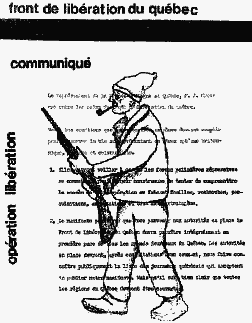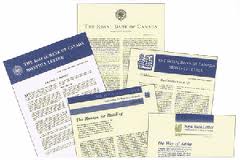So many memories, particularly of the years as neighbours on Rosemount Avenue, with shared activities, adventures and lively political discussions.…
Robert Stewart R.I.P.
Written by Diana Thebaud Nicholson // December 30, 2003 // Absent Friends // Comments Off on Robert Stewart R.I.P.
 Bob Stewart was one of Wednesday Night’s treasures. We shall miss him greatly for his wit and wisdom, generous contributions to debate and occasionally to accounts of the evening. His Royal Bank Letter titled The Duty of Civility was an inspiration (we asked Bob for numerous copies, distributing them widely) and required reading for Wednesday Nighters. See also Wednesday-Night.com
Bob Stewart was one of Wednesday Night’s treasures. We shall miss him greatly for his wit and wisdom, generous contributions to debate and occasionally to accounts of the evening. His Royal Bank Letter titled The Duty of Civility was an inspiration (we asked Bob for numerous copies, distributing them widely) and required reading for Wednesday Nighters. See also Wednesday-Night.com
The obituary that appeared in the Gazette
STEWART, Robert. After a struggle with cancer at the Royal Victoria Hospital on Sunday, December 28, 2003. He leaves sorrowing his friend and companion of almost thirty-five years, Agnes McFarlane, his daughter Jean of Ottawa, his son Hugh in Hong Kong, brothers Don (Neil), Brian (Pat), sister Sally (Steve), aunts, uncles, nephews and nieces. Born in Schreiber, Ontario in 1938, his career in journalism took him to Huntsville, Manitoulin, Cornwall, Pembroke, Ottawa, Toronto and Montreal. He was Editor of the Royal Bank Letter from 1978 till 2001. A keen student of Canada’s history, his major book is “Sam Steele: Lion of the Frontier”. He leaves unfinished his next – “The Sitting Bull Affair”. Friends are invited to a farewell gathering on Monday, January 5 from 6:00 to 9:00 p.m. at the Collins, Clarke, MacGillivray, White Funeral Home, 5610 Sherbrooke St. West.
Press Club members also got this note: For scheduling purposes, attendees wishing to say a few words on this occasion should communicate their intentions in advance to Kerry Ellard at (514) 286-0258.
Following the gathering at the funeral home you are invited to adjourn for drinks and reminiscences to the Montreal Press Club at the Claddagh Irish Pub, 1433 Crescent St.
A gentle and thoughtful man
Journalist wrote, edited widely-quoted Royal Bank Letter
Alan Hustak
The Gazette
published on the Montreal Press Club website
Robert Stewart, a high school dropout who became a highly respected author, essayist and freelance journalist, died of cancer in the Royal Victoria Hospital on Dec. 28, 2003 at age 65.
His first book, Sam Steele: Lion of the Frontier – a biography of Canada’s most famous Mountie, the superintendent of the Northwest Mounted Police during the 1885 Riel Rebellion – was originally published in 1979. But it was as the unsung author and editor of the Royal Bank Letter for 22 years that much of his best work was published anonymously.
The popular newsletter used to be distributed free to the bank’s customers until it ceased printing 2½ years ago and went on-line instead.
“He was an incredibly talented essay writer; a gentle, thoughtful man, who was also a great historian,” said David Moorcroft, the Royal Bank’s senior vice-president of corporate communications. “He would retrieve so much wonderful material from history and weave it into his essays. He brought so much intelligence, so much depth and perspective to his work.”
“At its peak, the newsletter had a circulation of over one million, and was one of the most quoted publications in the world.”
Robert Stewart was born Sept. 23, 1938, in Kenora, Ont., and grew up in Schreiber, a CPR divisional point on the north shore of Lake Superior. He dropped out of school in Grade 10 to work for a newspaper in Huntsville. He moved on to Manitoulin, Cornwall, Pembroke, and then to the Ottawa Journal. His only advanced education came after he won a Southam newspaper fellowship in 1966 and studied political science and Canadian history at University of Toronto.
“I learned everything I know about writing from working on different newspapers,” he once said, “and I dare say by having a lot of good editors.”
He built a solid career in journalism, eventually becoming the managing editor of the Financial Times of Canada. He also wrote for Time magazine and Reader’s Digest and many of his articles appeared in The Gazette’s opinion pages.
He was an avid fly and salmon fisherman and contributed stories to outdoor and travel magazines.
In addition, he was a ghost-writer for corporate executives too numerous to mention and was never given any of the credit for the speeches he wrote.
“He was very good behind the scenes,” said longtime friend and colleague Roy Howard.
“If ever there was a person who could regularly deliver a philosophical essay, it was Bob. He was a determined freelancer”.
Howard said he will forever remember Stewart as “someone who knew every popular song from the ’30s and ’40s. Not only could he sing an astounding number of songs, he wrote parodies of the songs with lewd lyrics that were not suitable for public consumption.”
Stewart started writing the Royal Bank Letter in 1978 and remained its editor until it ceased to print in 2001. It was, he said, a much more challenging job than he imagined.
“You have to have an idea pretty well in every sentence,” he once told a reporter. “You have to do a helluva lot of thinking., You can never coast in an essay. And you’re not dealing, as I did for years, with newspapers and magazines, with facts or what somebody said.”
An engaging raconteur with an appetite for good scotch, Stewart was working on The Sitting Bull Affair, his history of events in Canada after the chief of the Sioux nation massacred 220 men led by General George Custer at the Little Big Horn in Montana in 1876.
Royal Bank Letter
January 2004
Robert Stewart
1939-2003
It is with great sadness that we report that Bob Stewart, who served as editor of Royal Bank Letter for a quarter of a century, passed away on 29 December 2003. A hallmark of Bob’s tenure as editor was his versatility resulting from a background of writing about a great variety of subjects as a veteran free lance journalist. His list of former employers includes Dow Jones, The Wall Street Journal, and Time magazine. His 1977 book, Labrador, was published by Time-Life International. Another book reflecting his interest in Canadian history appeared in 1979: Sam Steele: Line of the Frontier. At various times in his career he was a court reporter, theatre and book critic, a travel and outdoor writer, and an Ottawa correspondent for the Financial Times of Canada. Bob drew on his varied and rich experience as a writer to provide countless readers of Royal Bank Letter with a lasting and enduring legacy of thoughtful and frequently philosophic essays. As he once said, “I am a great believer in Hannah More’s saying that people do not need so much to be instructed and reminded and I am here to remind them that there is steady progress in human affairs that is obscured by the smoke of controversy and conflict. We applaud Bob for clearing away some of that smoke and for making an extraordinarily worthwhile contribution that enriched the lives of readers of Royal Bank Letter. He will be sadly missed.
See also the March 2004 issue The current issue of RBC Letter is dedicated to the memory of Robert Stewart, who was one of only two editors of the modern letter. Mr. Stewart, who passed away on Dec. 28, 2003, began this issue of the letter and others have supplemented his work.
17 May 2000
The Patriote Games
ROBERT STEWART
Freelance
 FLQ used Patriote image on its communiques. FLQ used Patriote image on its communiques. |
Every independence movement must have its inspirational tales, from the American stand at Bunker Hill to Gandhi’s barefoot trek to the sea to make salt in defiance of British rule in India. The chief tale of this kind among Quebec sovereignists is the rebellion of 1837-38.
The popular Quebecois view of it is as a struggle for independence in which fed-up habitants donned their tuques and sashes, picked up their muskets and strode forth to bravely face their English oppressors. The image makes strong propaganda. During the 1970 October crisis, a stylized drawing of one of those doughty freedom fighters adorned the FLQ’s communiques.
Delegates to the Parti Quebecois policy convention earlier this month, moved to heighten awareness of this little war by passing a motion “calling on the government to rename a statutory holiday, like Victoria Day or Canada Day, to honour the Patriotes who led an 1837-38 rebellion against British colonial rule,” as The Gazette reported.
…
Now to the third awkward fact, which is that the rebellion in Lower Canada made a good example of intra-Canadian co-operation. In Upper Canada (Ontario), William Lyon Mackenzie had long been fighting the same political battles as Papineau. The two co-ordinated practically every move in a joint strategy. When the first shots were fired in Lower Canada in 1837, the Upper Canadian “Patriots” pledged their support of their French-speaking brethren. They did not offer armed reinforcements because they were preparing to rise up themselves.
The fact that 12 Patriotes were hanged and 58 deported to the Australian penal colonies has often been cited by Quebec nationalists as proof of the brutal attitudes of the British authorities and their English-Canadian allies toward French Canadians. But the French do not seem to have been singled out for special treatment. Twenty-five “prisoners of war” were executed in the Upper Canadian rebellion and its aftermath, and 92 Upper Canadian rebels were transported to Australia.


